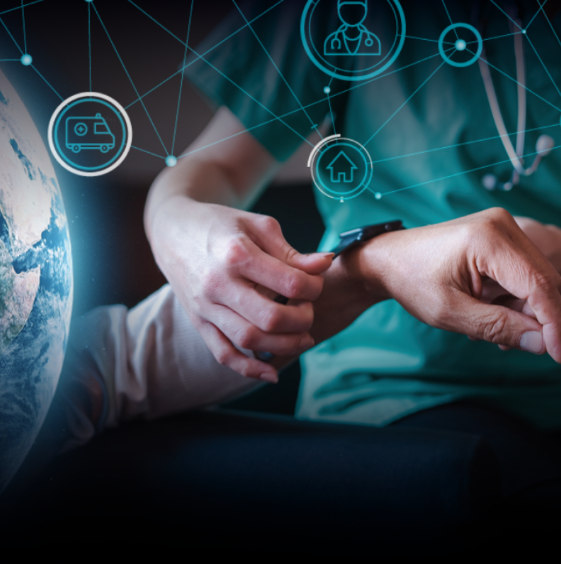The healthcare industry is undergoing a significant transformation as technology continues to revolutionize the way we experience medical care. Innovations are making healthcare more accessible, efficient, and personalized, ultimately improving patient outcomes. From online appointment scheduling to advanced diagnostic tools, technology plays a central role in streamlining healthcare processes and enhancing patient care. By understanding how various technological advancements are reshaping healthcare, we can better appreciate their impact on our well-being.
Transforming the Patient Experience
Technology is changing the way patients interact with healthcare systems. Online booking platforms, access to electronic medical records, and unified patient data systems are making healthcare more convenient and transparent. Patients now have more control over their healthcare journey, from booking appointments to tracking their medical history. These technological tools enable healthcare professionals to access comprehensive patient data, which allows them to make more informed decisions and provide higher-quality care. This shift is creating a more efficient and cohesive healthcare ecosystem, where past treatments and diagnoses inform future care plans.
The Impact of AI in Medicine
Artificial Intelligence (AI) is revolutionizing modern medicine, offering capabilities that were once considered the stuff of science fiction. AI-powered diagnostic tools are already playing a key role in early disease detection, particularly in fields like oncology. By analyzing medical images and data, AI systems can identify anomalies with exceptional precision, providing radiologists with valuable insights to make quicker, more accurate diagnoses. Additionally, AI is helping to personalize treatments by predicting how patients will respond to specific therapies, making healthcare more tailored and effective. As AI continues to evolve, it holds the potential to reshape diagnostics and improve patient care on an even larger scale.
Telemedicine: Connecting Patients with Providers
Telemedicine has become a game-changer, especially for patients in remote or underserved areas. By utilizing video conferencing and other communication technologies, telemedicine bridges the gap between patients and healthcare providers, allowing for consultations without the need for travel. This convenience saves both time and money while ensuring that patients receive timely medical advice. The rise of telemedicine during the COVID-19 pandemic further demonstrated its value, as it enabled healthcare systems to continue functioning even during global health crises. Today, telemedicine is a key component of modern healthcare, making healthcare more inclusive and accessible to a broader population.
Wearable Technologies: Giving Patients Control
Wearable devices such as smartwatches and fitness trackers are empowering patients to take charge of their health. These devices track key health metrics like heart rate, physical activity, and sleep patterns, providing users with real-time data. For individuals with chronic conditions like diabetes or hypertension, wearables serve as valuable tools for continuous health monitoring. By tracking and analyzing data on a daily basis, patients can make informed decisions about their health and prevent the escalation of health issues. This level of engagement is transforming the way people manage their health, fostering a more proactive approach to wellness.
Big Data: Predicting Health Trends
In the digital age, big data analysis is playing an increasingly important role in preventive healthcare. By analyzing vast amounts of health-related data, healthcare providers can identify patterns that help predict and prevent illnesses. This technology enables early detection of potential health threats, such as disease outbreaks, and helps healthcare professionals respond more effectively. Big data also informs policy-making and public health initiatives, ensuring that resources are allocated to areas with the greatest need. The use of big data is helping to shift the focus of healthcare from reactive treatment to proactive prevention.
Robotics in Surgery: Precision and Efficiency
The use of robotics in surgery is transforming the field, offering unparalleled precision and reducing the risks associated with traditional surgery. Robotic-assisted systems enhance the surgeon’s ability to perform complex procedures with greater accuracy, leading to fewer complications and faster recovery times for patients. These systems provide surgeons with improved visualization and control, allowing them to carry out minimally invasive surgeries that reduce patient trauma and enhance outcomes. Robotics is particularly useful in specialties like orthopedics and gynecology, where precision is critical. As technology advances, robotic surgery is expected to become even more integrated into medical practice, offering more options for patients and improving surgical outcomes.
Addressing Challenges and Ethical Concerns
While technology has brought many benefits to healthcare, it also presents challenges and ethical dilemmas. Data privacy and security remain major concerns, especially with the digitization of patient records and the use of AI in clinical decision-making. Safeguarding patient information is essential to maintain trust in healthcare systems. Additionally, the digital divide—where access to technology is unequal across different demographics—raises concerns about equity in healthcare. Not all individuals have equal access to the latest medical technologies, and this disparity could worsen existing health inequalities. It is vital that healthcare systems address these issues, ensuring that technological advancements benefit everyone, not just those with easy access to digital tools.
Looking Ahead: The Future of Healthcare Technology
The future of healthcare technology is filled with possibilities. Innovations such as virtual reality (VR) are offering new ways to treat pain and aid in rehabilitation by immersing patients in controlled environments designed to promote healing. Additionally, breakthroughs in nanotechnology may revolutionize drug delivery systems, allowing for more targeted treatments with fewer side effects. As these technologies continue to evolve, the focus will remain on improving patient care, increasing efficiency, and ensuring inclusivity. With the right approach, technology can make healthcare systems more resilient and adaptive, benefiting patients around the world.

发表回复